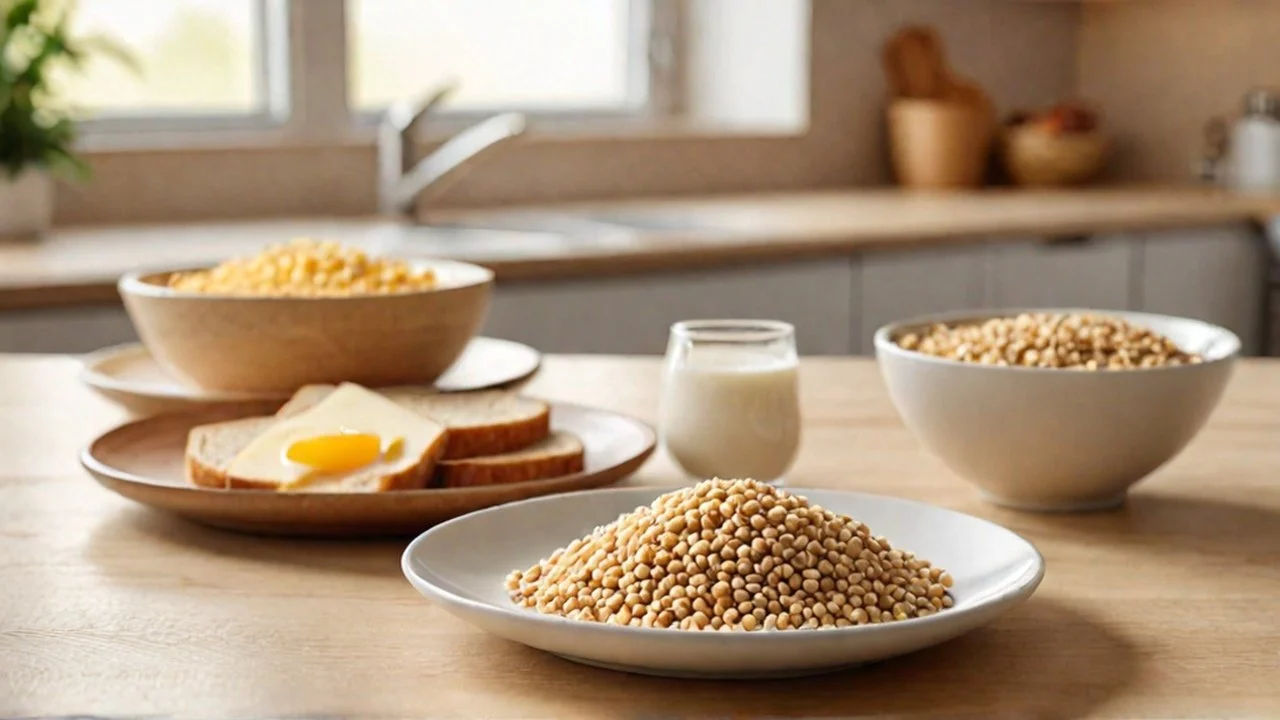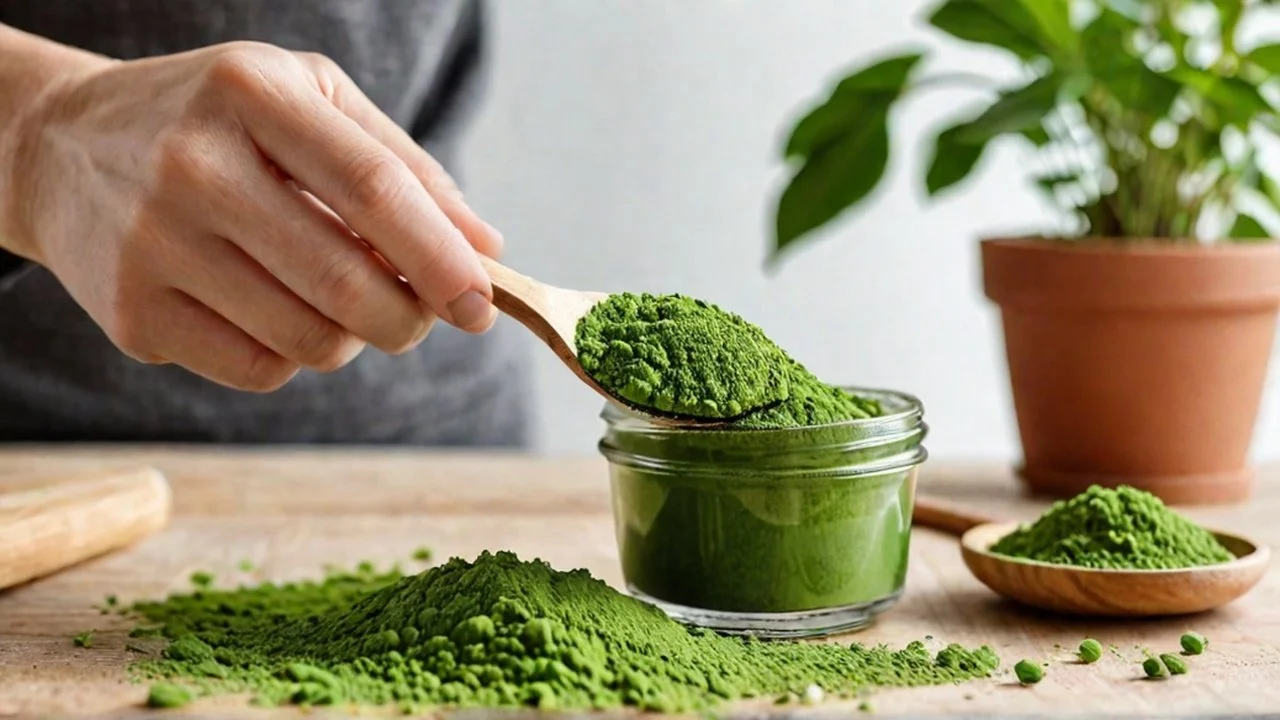Infertility: When Biology Lets Us Down and How To Use Natural Products/Foods to Help.
Infertility and Its Connection to Diet, Stress, and Age: Natural Ways to Boost Fertility and Pathways to Motherhood
Infertility affects millions of women, and while medical conditions play a significant role, factors such as diet, stress, and age also profoundly impact fertility. Fortunately, natural approaches, including nutrition, lifestyle adjustments, and remedies, can help support reproductive health. This article explores how these factors influence fertility and offers natural methods to boost fertility naturally.
Infertility is a challenge that affects many women worldwide. Female infertility is defined as the inability to conceive after one year of unprotected intercourse. While this can be a distressing and emotional experience, understanding its causes and exploring possible solutions—both natural and medical—can help women take steps toward motherhood.
Causes of Female Infertility
The causes of female infertility are numerous, and understanding them is the first step to finding appropriate treatment. Some of the most common causes include: Best Sperm Checker.
Ovulation Disorders: These are one of the leading causes of infertility. Conditions like polycystic ovary syndrome (PCOS) and primary ovarian insufficiency can disrupt ovulation, preventing eggs from being released regularly. Best Ovulation Tracker.
Blocked Fallopian Tubes: Fallopian tube damage or blockages, often caused by infections, pelvic inflammatory disease (PID), or endometriosis, can prevent sperm from reaching the egg or hinder the fertilized egg from reaching the uterus.
Uterine or Cervical Abnormalities: Abnormalities such as uterine fibroids, polyps, or a malformed uterus can affect implantation or cause recurrent miscarriages.
Endometriosis: This condition occurs when tissue similar to the uterine lining grows outside the uterus, causing inflammation and scarring that may interfere with the release of eggs or their travel to the fallopian tubes.
Age: Fertility naturally declines with age, as the number and quality of eggs decrease. Women over 35 may experience a significant decline in fertility.
Hormonal Imbalances: Issues with hormones that regulate ovulation and reproduction, such as prolactin or thyroid hormones, can affect fertility.
Diet and Fertility: Building a Fertility-Boosting Diet
A nutrient-dense diet is essential for optimizing reproductive health. Certain foods improve hormone balance, egg quality, and overall reproductive function. Below is an expanded guide on building a fertility-friendly diet and key nutrients women should focus on when trying to conceive.
Key Nutrients for Fertility:
Folic Acid (Vitamin B9):
Folic acid is crucial for DNA production and helps prevent neural tube defects during pregnancy. Women trying to conceive should aim for at least 400 mcg daily, either through food or supplements.
Food sources: Leafy greens (spinach, kale), citrus fruits, fortified cereals, legumes.Omega-3 Fatty Acids:
Omega-3s improve egg quality, reduce inflammation, and regulate hormones essential for ovulation. They also promote better blood flow to the reproductive organs, which is vital for implantation.
Food sources: Fatty fish (salmon, mackerel), flaxseeds, chia seeds, walnuts.Antioxidants:
Antioxidants, such as vitamins C and E, protect eggs from oxidative damage, which can affect their quality. These vitamins neutralize free radicals that can negatively impact fertility.
Food sources: Berries (blueberries, strawberries), bell peppers, almonds, sunflower seeds.Iron:
Low iron levels can contribute to ovulatory infertility. Iron from both plant and animal sources ensures a healthy menstrual cycle and supports reproductive function.
Food sources: Lentils, quinoa, spinach, lean red meat, tofu.Zinc:
Zinc plays a critical role in cell division and the development of a healthy egg. Deficiency in zinc has been linked to fertility issues.
Food sources: Pumpkin seeds, chickpeas, eggs, oysters, beef.Coenzyme Q10 (CoQ10):
This powerful antioxidant helps improve egg quality, especially in women over 35. CoQ10 boosts mitochondrial function, which is key to the energy production required for egg development.
Food sources: Organ meats (liver, heart), oily fish, spinach, and broccoli. Supplements are also widely available.Vitamin D:
Vitamin D deficiency has been linked to lower fertility. Adequate levels of this vitamin can improve ovarian function and egg health.
Food sources: Sunlight, fortified dairy products, eggs, and mushrooms.
Foods to Emphasize for a Fertility-Boosting Diet:
Whole Grains:
Complex carbohydrates help regulate blood sugar levels, which is important for hormonal balance. Whole grains like quinoa, brown rice, and oats also provide essential nutrients, including fiber, B vitamins, and magnesium.Plant-Based Proteins:
Diets high in plant-based proteins from sources such as beans, lentils, and nuts are associated with better fertility outcomes. Replacing some animal protein with plant protein can help reduce the risk of ovulatory disorders.Full-Fat Dairy Products:
Research has shown that full-fat dairy products, such as full-fat yogurt and milk, may support ovulation more than low-fat options, potentially due to their impact on hormone levels.Healthy Fats:
Incorporating healthy fats like olive oil, avocado, and nuts into your diet can help regulate reproductive hormones. These fats are essential for creating a healthy hormonal environment necessary for conception.Fertility Superfoods:
Avocados: Rich in healthy fats, folate, and vitamin E, all of which help support reproductive health.
Quinoa: A gluten-free grain packed with essential amino acids, fiber, and B vitamins, ideal for maintaining hormonal balance.
Berries: Loaded with antioxidants that protect eggs from oxidative stress and inflammation.
Foods to Avoid:
Refined Sugar and Processed Foods: Foods high in refined sugar can cause insulin resistance, which negatively affects hormone levels and ovulation.
Trans Fats: Found in processed snacks, fried foods, and margarine, trans fats have been linked to inflammation and reduced fertility.
Excessive Alcohol and Caffeine: Limit alcohol consumption, as it can affect hormone levels. Similarly, too much caffeine has been linked to infertility, so it's recommended to limit intake to one cup of coffee per day.
Stress and Its Impact on Fertility
Stress plays a significant role in fertility, with chronic stress affecting hormonal balance, menstrual cycles, and ovulation. When the body is under constant stress, it produces cortisol, which can interfere with the normal functioning of reproductive hormones such as estrogen and progesterone.
Meditation and Mindfulness:
Practicing mindfulness techniques can help lower cortisol levels and promote a sense of calm. Studies have shown that regular meditation can improve hormonal regulation and improve overall reproductive health.Yoga for Fertility:
Yoga not only helps improve physical flexibility but also reduces stress, improves circulation to reproductive organs, and balances hormones. Fertility yoga focuses on poses that enhance pelvic blood flow and reduce tension in the body, making it a popular natural remedy for women trying to conceive.Acupuncture:
Acupuncture is a traditional Chinese medicine practice known for its ability to reduce stress, regulate hormonal imbalances, and enhance fertility by improving blood flow to the reproductive organs.Exercise:
Moderate exercise, such as walking, swimming, or cycling, helps lower stress and improve fertility. However, intense exercise can increase cortisol levels and may harm fertility, so it's important to maintain a balanced routine.Sleep:
Ensuring adequate, high-quality sleep is essential for reducing stress and promoting hormonal balance. Lack of sleep has been shown to increase cortisol production, which can interfere with reproductive health.
Age-Related Infertility
As women age, fertility naturally declines, with the most significant drop occurring after age 35. This is due to the decreased quality and quantity of eggs, as well as changes in reproductive hormone levels. However, women can still support their fertility through lifestyle changes, nutrition, and natural remedies.
Natural Approaches to Combat Age-Related Fertility Decline:
Antioxidant Support:
Increasing antioxidant intake can help protect aging eggs from oxidative stress, improving their quality and viability. This can be achieved through a diet rich in fruits, vegetables, and supplements such as CoQ10 and vitamin E.Supplements for Egg Health:
In addition to CoQ10, DHEA (dehydroepiandrosterone) is often recommended for women over 35. DHEA is a hormone that helps improve ovarian function and increase the number of quality eggs produced during each cycle.Herbal Fertility Boosters:
Maca Root: A Peruvian herb known for its ability to balance hormones and increase libido, maca root may also enhance fertility by supporting adrenal health.
Chasteberry (Vitex): Often used to regulate the menstrual cycle, Vitex helps balance progesterone levels, which is crucial for conception.
Red Clover: Known for its high phytoestrogen content, red clover can help balance estrogen levels, especially in women nearing menopause.
Physical Therapies and Practices:
Fertility Massage: This involves massaging the pelvic region to improve blood flow to the reproductive organs, reduce adhesions, and increase lymphatic drainage, which may help support reproductive health.
Castor Oil Packs: Applying castor oil packs to the lower abdomen is believed to improve circulation to the uterus and ovaries, promoting detoxification and healing.
More Natural Remedies to Boost Fertility
Beyond diet and stress management, other natural remedies have gained popularity for their potential to boost fertility and support a healthy reproductive system.
Herbal Remedies:
Ashwagandha: An adaptogenic herb that supports the body’s response to stress and helps balance cortisol levels, which can promote reproductive health.
Shatavari: A traditional Ayurvedic herb that helps nourish the reproductive system and balance hormones, especially estrogen.
Evening Primrose Oil: Known for improving cervical mucus quality, which aids sperm mobility and enhances conception chances.
Seed Cycling:
Seed cycling is a practice where women consume specific seeds during different phases of their menstrual cycle to balance hormone levels naturally. For example, flaxseeds and pumpkin seeds during the follicular phase and sunflower seeds and sesame seeds during the luteal phase.Natural Detoxification:
How Diet and Stress Affect Female Infertility
Diet: Nutritional deficiencies can impact fertility. For example, inadequate levels of folic acid, zinc, iron, and essential fatty acids can impair ovulation. A diet high in processed foods, sugars, and unhealthy fats can also disrupt hormone levels, leading to issues like insulin resistance (which is often linked to PCOS).
Key dietary tips for enhancing fertility include:
Consuming foods rich in antioxidants (like fruits and vegetables) to protect eggs from free radical damage.
Including healthy fats (e.g., omega-3s from fish, nuts, and seeds) which help regulate hormones.
Maintaining a diet high in whole grains, lean proteins, and fiber to promote regular ovulation.
Reducing intake of processed foods and trans fats, which can interfere with hormone production.
Stress: Chronic stress can increase the production of stress hormones such as cortisol, which can interfere with the hormones necessary for ovulation. In severe cases, stress may even halt ovulation altogether. Additionally, stress can lead to unhealthy lifestyle habits such as poor diet choices or lack of exercise, which further reduces the chances of conception. Both diet and stress play significant roles in overall reproductive health. A balanced, nutrient-rich diet supports the hormonal balance and the body’s ability to conceive, while chronic stress can impact fertility in various ways
More Natural Remedies for Female Infertility
For those looking to improve fertility naturally, there are several remedies and lifestyle changes that can support reproductive health:
Herbal Supplements:
Vitex (Chaste Tree Berry): Known to help regulate hormones and promote ovulation, Vitex is commonly used by women with irregular cycles.
Maca Root: Often used to improve libido and balance hormones, maca root has been linked to improved fertility in women.
Evening Primrose Oil: Helps improve cervical mucus, which can aid sperm in reaching the egg more easily.
Ashwagandha: This adaptogen can reduce stress, which may help balance hormones involved in reproduction.
Acupuncture: Acupuncture has been used for centuries to promote fertility by improving blood flow to the reproductive organs, regulating hormone levels, and reducing stress. Studies suggest it can be particularly beneficial for women undergoing in-vitro fertilization (IVF).
Yoga and Mindfulness: Practices like yoga and meditation can help reduce stress levels and promote relaxation. Certain yoga poses are believed to improve circulation to the reproductive organs and balance the endocrine system, which regulates hormones.
Exercise: Regular moderate exercise can improve fertility by balancing hormones, reducing stress, and maintaining a healthy weight. However, excessive exercise can have the opposite effect by disrupting hormonal balance.
Dietary Adjustments: As mentioned earlier, eating a fertility-boosting diet rich in antioxidants, whole foods, and healthy fats can significantly improve ovulatory health.
Castor Oil Packs: Some women use castor oil packs on their abdomen to improve circulation and promote healing of reproductive tissues, including the fallopian tubes and ovaries.
Pathways to Motherhood: Beyond Natural Conception.
For women facing infertility, there are various medical options that can help them achieve motherhood. These treatments are often used when natural remedies are not sufficient, or when infertility is due to structural or severe medical conditions.
In-Vitro Fertilization (IVF): IVF is a common and highly effective treatment for infertility. It involves fertilizing an egg outside the body, in a laboratory dish, and then transferring the embryo into the uterus. IVF is often recommended for women with blocked fallopian tubes, endometriosis, or unexplained infertility.
Surrogacy: Surrogacy is an option for women who cannot carry a pregnancy to term due to medical conditions affecting the uterus. In surrogacy, another woman carries and gives birth to a child conceived through IVF using the intended parents' egg and sperm, or with donor materials if necessary.
Egg Donation: For women who cannot conceive due to poor egg quality, egg donation may be an option. In this procedure, a donor’s eggs are fertilized with sperm and the resulting embryos are implanted in the recipient’s uterus.
Adoption: Adoption offers a pathway to parenthood for those who cannot or choose not to pursue biological means of having children. It provides the opportunity to raise and nurture a child who needs a loving home.
Conclusion
Infertility can be an emotionally challenging journey, but understanding the causes and exploring the available natural and medical treatments can empower women to make informed decisions. Whether through natural remedies like diet, herbal supplements, or stress reduction techniques, or through assisted reproductive technologies like IVF or surrogacy, there are many ways to achieve the dream of motherhood. Each woman’s path is unique, and the goal is to find the approach that works best for her body and circumstances. Adoption is also a beautiful option for those seeking to build a family, offering the gift of parenthood in a meaningful and fulfilling way.
#Stress and infertility connection
#How to reduce stress to improve fertility
#Fertility yoga for conception
#Meditation for hormone balance
#Fertility after 35
#Age and fertility decline
#Supplements to improve egg quality
#Natural remedies for fertility






